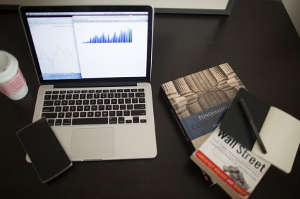Getting your personal finances under control is one of the most important and worthwhile things you can do. But it can also be one of the most complicated. That’s even more the case because we are all struggling with different problems. We all have different goals and different resources to work with. So it’s important to find financial guides that fit those goals and resources. To help get you started, here is a beginner’s manual to finding the right financial guide.
Online Resources
The internet is a wealth of different resources including social media accounts, blogs, online courses, webinars, video tutorials, and so much more. But not all online resources are created equal. Some are not as reliable as others and even among the quality resources, not every one is going to focus on the issues most relevant to you. With that in mind, here are some of the questions you need to answer about any online resource you are thinking of using:
1) What kinds of issues are you most concerned about?
Make a list of the key personal finance issues you want to learn about. Are you trying to get your debt under control? Are you preparing to buy your first home? Are you trying to get a degree without going into debt? Whatever it is, write it down. And use that as a guide to find different resources that can help you with each of your concerns. You can use this as a guide for books, magazines, and newspapers as well.
2) What kind of advice are they offering?
The sort of solutions a blog will suggest can vary wildly. And sometimes it’s not always relevant to you. For example, the solutions for a wealthy person to get themselves out of debt are going to be a lot different from the solutions for a middle class or low-income person. Find advice geared toward people in your specific situation.
3) How regularly do they publish new posts?
One of the greatest advantages a blog offers over a book is their ability to remain up to date. But if a blog doesn’t put out new posts on a regular basis, it’s not really any more up to date than a book. Look for blogs that publish weekly.
4) Are there any free online classes about the issues you are interested in?
Online classes can help you develop the actual skills necessary to apply great personal finance advice to your life. And there are tons of free ones out there just waiting for you to find them.
Books
Books are the best tools for getting in depth, well-researched information in a way that actually helps you understand how it fits in with everything else you are trying to accomplish. Writers will sometimes spend years researching a single book and the effort shows. When you really want to gain a deep understanding, you want a book. Make sure you get the best personal finance books by first answering these questions:
1) Who is the author and what else have they written?
Learning about the author’s background and education can help you decide whether or not they are really qualified to teach you about the things you are hoping to learn.
2) What reviews and ratings does it have?
It’s important to read book reviews. You should look at the overall rating then read at least 3 positive reviews and 3 negative reviews. This gives you an idea of what the strengths and weaknesses of the book are.
3) Does it provide practical examples, exercises, or step by step instructions?
One of the best traits of a book is that it can help you really work with the information in a way that many blogs and articles don’t help you do. A book might provide worksheets, exercises, or tips for how to actually apply the information to your life.
Magazines & Newspapers
Magazines and newspapers can be great sources of relevant news and information. Their staff of writers often has better access to experts and high ranking people in business and government. For you, that means you can gain insights and ideas directly from the mouths of highly successful people. But make sure to answer these questions about any magazine or newspaper you are thinking of subscribing to:
1) What is the publication’s specialty?
Do they mostly focus on global economics or do they write primarily about financial markets? Perhaps they are more specifically oriented toward personal finances. It’s not possible to know everything so you want to make sure you’re getting your news and information from someone who is an expert in the specific area you are most interested in.
2) Does it report on relevant news and current events as well?
Your personal finances do not live on an island. They are part of the larger economy. So make sure you are getting the news and updates about the larger economy and market that you need to prepare yourself for the outside influences that might affect your personal finances.
3) Who is writing the articles you most enjoy? What else have they written? Do they write for anyone else?
If you come across an article that really makes an impact, check out the author. Many journalists also maintain a blog, social media, or even publish books. If you found that one article so relevant, chances are this writer has written other stuff that will really be helpful for you.
Final Thoughts – Beginner’s Guide to Finding the Right Financial Guide
With so many different guides and resources out there, it can be hard to figure out which ones are actually relevant for you. And with your busy schedule, you don’t have a lot of time to be wasting on reading financial advice that doesn’t apply to your life. By asking the questions above, you’ll be able to easily filter through all the different resources and narrow in on the ones that offer the best value for you. So take the next step toward financial independence today!










Nice post, Derek. And thanks for linking to my article about getting your masters without any debt. It’s definitely possible. I did it!!
Derek – no problem! Nice work on getting your MS with no debt 🙂 We are in the same club, I got my BS and MS with $0 out of my pocket (scholarship and company funded). It feels great to get all the education without having to pay for it!